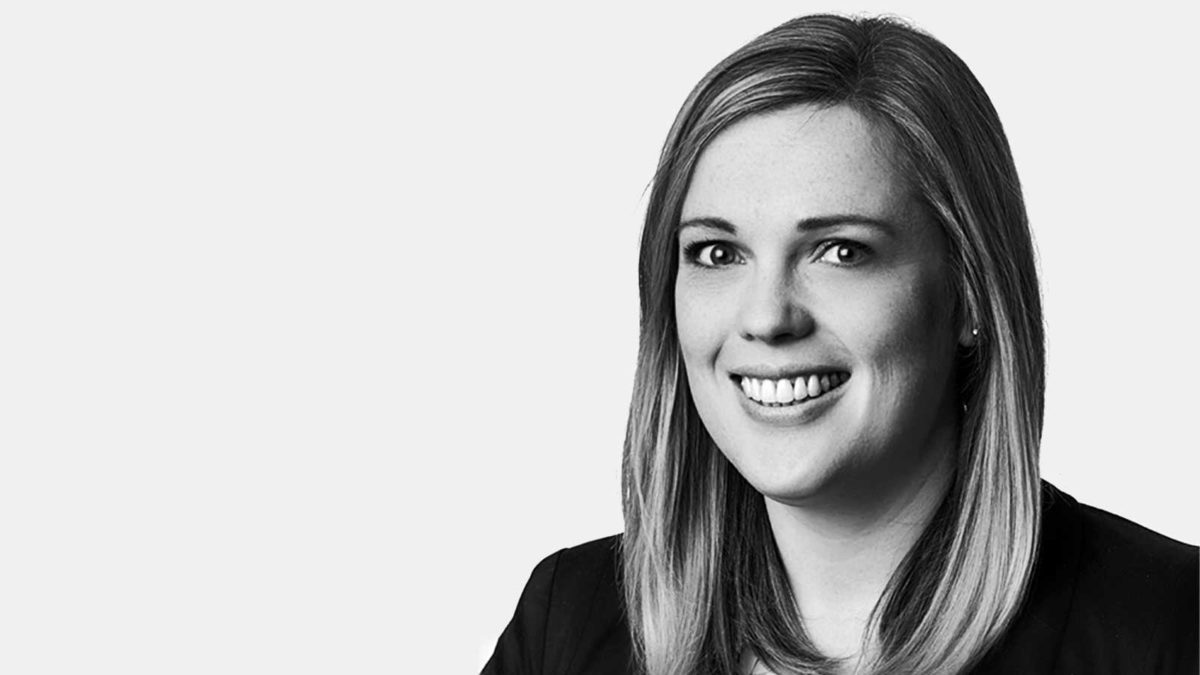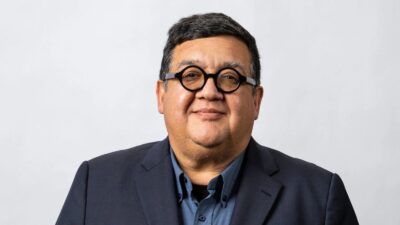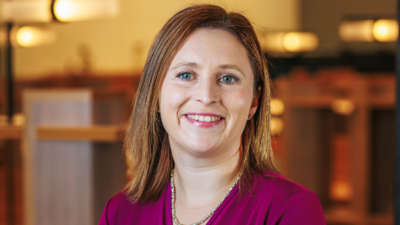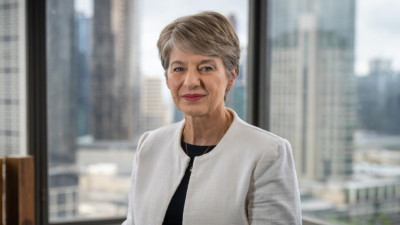Nicole Kennedy’s super lesson in career development
When Nicole Kennedy left school in 2003, she decided to delay studying psychology or sociology at university for a time and got a job instead. Her version of a gap year turned into a career in super.
She finds herself, 18 years later, almost five years into the role of head of operational delivery at CareSuper, reporting to Julie Lander, the fund’s chief executive. She seems as enthusiastic as she was a teenager starting out doing what most would consider mundane clerical work in the Canberra office of the then State Super Financial Services advice arm, now StatePlus, a part of Aware Super.
She detailed aspects of her career so far and the choices she made last week (August 4) at a Women in Super webinar which was part of the organisation’s ‘Women in Leadership’ series. The discussion, with Polly Nix of sponsor J.P. Morgan, provided some lessons and inspiration for others – not only women.
She quite liked the work at State Plus but, after two years in Canberra, and having studied for a diploma in financial services, she decided to move to Melbourne, which had been a goal for a while. She applied for an got a role in the Vic Super contact centre.
“This was a whole other world,” she said. “I got an appreciation for how hard that role is. You have to maintain your energy all day and try to make sure that everyone gets the same level of service they deserve.”
She was in the fund’s head office and another aspect of her personality which has served her well was evident – her curiosity. She said: “I was fascinated by everyone’s roles.”
One role that fascinated her, which you would have to think unusual for someone in her early 20s, was ‘pensions and switch specialist’. She got that role when it came up and, in a common theme throughout her career, she was surprised at her appointment.
“The feedback I got afterwards was that it was my passion which shone through,” she said. “It was the first time that I saw that your attitude could make such a difference.”
After working in that role for 18 months, then taking maternity leave, she was offered a team-leader role on her return. “I was floored but happily accepted,” she said. I learned a lot very quickly. I got involved in everything that I could.”
She then saw a new role which included insurance and investments (Vic Super was self-administered) and she said she “felt vulnerable” and sought advice ahead of the panel-style interview. “But I went for it and got the job… That’s when my career really took off.”
The appointment surprised many of her colleagues. “I was only 25 or 26″,” she said. “We were in the middle of an insurance redesign and I had to rely on others for expertise. I learned about prioritisation and personal boundaries. I learned that no-one was irreplaceable and that change can be a good thing. There was a lot of change there, with a new CEO and others having left. It’s important to learn to ask for help.”
She said: “But I was still a mum, so I had to remind myself to walk in the door at night happy. That’s what they’ll remember. You smile even when you’ve had a full-on day.”
After five years in the management role and 11 years in total at Vic Super, and having attended the Melbourne Business School’s leadership program, where she was conspicuous by her age, she wanted a change.
She was uncertain whether to do that full-time study which she had previously planned or pursue another management position at Vic Super. She ultimately decided to accept an offer from CareSuper.
“CareSuper has a different business model, with outsourced admin, and I wanted to understand whether I could be a leader at a different sort of business,” she said. “I wondered whether the skills I’d learned would transfer. A lot of thought went into what I would need for the job.”
Asked by Polly Nix for some tips she had gleaned along the way so far, Kennedy said that women typically were mentored on confidence while men were typically taught how to do the job. “So, I tend to mentor people more about capabilities. I also like to make clear the team’s or department’s strategy so they can think about their own plans and how they fit in.”
She suggested people ask themselves what success means. “Sometimes we forget how much we’ve learned… [to look at that] builds a sense of confidence for the next generation of leaders.”
She said that she tried to be open and direct and liked to think of herself as being very genuine with others. She also tried to challenge others to be the best they could.
“I watch them and see how people are managing with their jobs and want them to have opportunities to stretch themselves… I started out as a technical specialist but over time have evolved. I’ve probably softened and I try to be more patient and less reliant on my technical knowledge.”
Having alluded to what’s known as the ‘imposter syndrome’, which gets aired frequently at Women in Super events, Kennedy said that she was “one of them”. This is where people think that they are not good enough for a role and often do not believe their success is deserved.
“Why would you listen to your worst critic or own self-doubts rather than the person who believes in you? If you can do everything on a job description you’re probably over-qualified,” she said. “It’s really important to surround yourself with people who believe in you.”
An audience member added: “We need to listen to our cheerleaders.”
On how she worked with Julie Lander, CareSuper’s chief executive, Kennedy said after the webinar that the direct reporting structure had been in place since her previous executive manager, Rachel Reynolds, left the fund in late 2019.
“I’ve had the opportunity to work with Julie on departmental strategy and engagement, vendor relationships, projects, Board and Committee papers, and also my own personal development and goals.”
And, as for that psychology degree, she still thinks about it. She said: “At this stage I’m getting so much out of my professional career and feel like I’m given the platform to make a difference in this space, so I wouldn’t go back and make the switch at this point. “That said, I’ve definitely considered the possibility of an earlyish retirement from professional life and, after some study, offering counselling and/or coaching on a volunteer basis to give back. It’s a little while before anything like that is on the cards though.”











